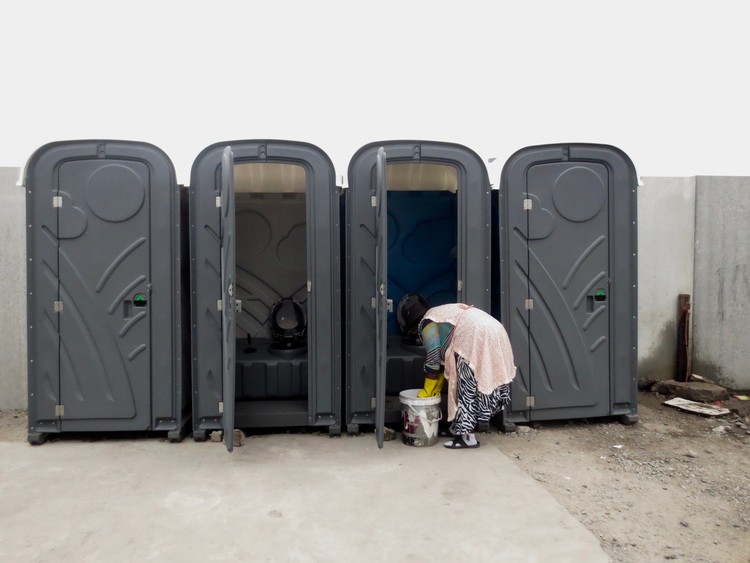Shack dwellers ask City to share cost of janitors
Toilets donated to community of Siyangena are kept clean by residents
Residents of Siyangena informal settlement in Philippi have been without basic services since they occupied land in January. About 500 people live in shacks on Erf 12718 on private land. After 12 toilets were donated to the community, residents appointed three janitors who are paid by residents to keep the toilets clean.
Some people have illegal electricity connections. A communal tap has been connected without authorisation to the municipal water supply.
On September 12 toilets were donated by Philippi Village, a joint venture between Business Activator and the Bertha Foundation. Prior to this people were either going to the bush or paying R1 to use the toilets at a local business centre.
Godfrey Khiva, a community leader, says, “We got the toilets from Philippi Village because we have a history of working together for the good of our community … The 12 toilets cannot match the number of people in the informal settlement … Currently, the toilets are at one side of the informal settlement and we need more for the other side.”
The community has also taken the initiative to employ three people, paying them each R1,500 a month to clean the toilets.
“The R1,500 is really not enough for my family,” says Zola Stokwana, one of the janitors. He is otherwise unemployed and has two children. School transport alone costs R350 per month for each child.
Another janitor, Phaliswa Mfunde, says, “I really had to take up the offer because both my husband and I were not working. We struggled to get food.”
Mfunde cleans the toilets from 7:30am until 5pm.
“We are aware it [R1,500] does not meet their family’s basic needs. All members of the community have to contribute towards the cleaners’ salaries. The cleaners are doing a good job, hence we are calling on the City to intervene and also pay the cleaners,” said Khiva.
The City of Cape Town conducted a site inspection in October, but it says it cannot develop private land. Mayoral Committee Member for Informal Settlements Councillor Xanthea Limberg said, “The City has limited resources and many communities which have been in existence for many years have been waiting patiently for improved services. Illegally formed informal settlements cannot be allowed to undermine existing budgeted service delivery programmes. It would not be fair for this settlement to be prioritised for urgent service provision given that it has resulted from an illegal land invasion on privately owned land.”
“The City has, however, assessed the need for services in the area so that these can be provided once budget becomes available.”
Next: “Tell us how you get high”
Previous: Mortuary employees arrested for defying court order to end go-slow
© 2018 GroundUp.
This article is licensed under a Creative Commons Attribution-NoDerivatives 4.0 International License.
You may republish this article, so long as you credit the authors and GroundUp, and do not change the text. Please include a link back to the original article.



